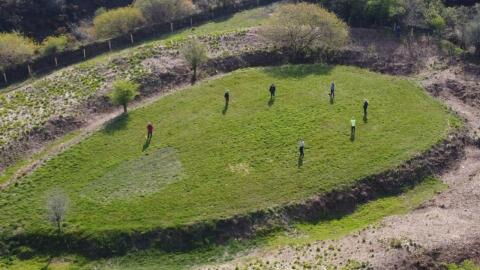Archaeologists discovered a human skeleton that was sticking out of the bottom of the flooded cave on Mexico's Caribbean coast. Evidently, the cave was flooded 8000-years-ago by the end of the last ice age.
Discover our latest podcast
A prehistoric skeleton
The skeleton was discovered by archaeologist Octavio del Rio diver Peter Broger, as reported by ABC News. They found the skull of the body, sticking above the sand in a cave near Mexico’s border. The researchers believe that the remains could not have reached beneath the water without the help of ‘modern diving equipment’.
A pre-historic human skeleton has been found in a cave system that was flooded at the end of the last ice age about 8,000 years ago, according to an archaeologist and cave diver on Mexico's Caribbean coast. https://t.co/Y1Pc5zxFpnpic.twitter.com/807alRf8hP
— The Associated Press (@AP) September 14, 2022
This indicates that the body must be prehistoric and was here when the caves flooded by the end of the last ice age, 8000 years ago. Octavio del Rio said:
There it is. We don't know if the body was deposited there or if that was where this person died
Destruction of the cave?
Although this was an incredible find, the cave that the body was discovered in might be destroyed soon. According to AP News, Mexico’s government is planning to construct ‘high-speed’ trains for tourists, that will be built through the jungle.
The government has already started the process of deforesting the area in order to lay down the foundations of the track. The location of the cave remains hidden due to concerns about the looting of the findings. The disturbance caused by the construction can leave the cave ‘collapsed or contaminated with toxins from chemicals.
Read more:
⋙ Remarkable discovery of 1.8 million-year-old tooth that might belong to ancient human species
⋙ Skeletal remains of a 'vampire' woman from the 17th century discovered (PHOTO)
⋙ Ancient skeleton with amputated leg may well challenge the history of medicine















